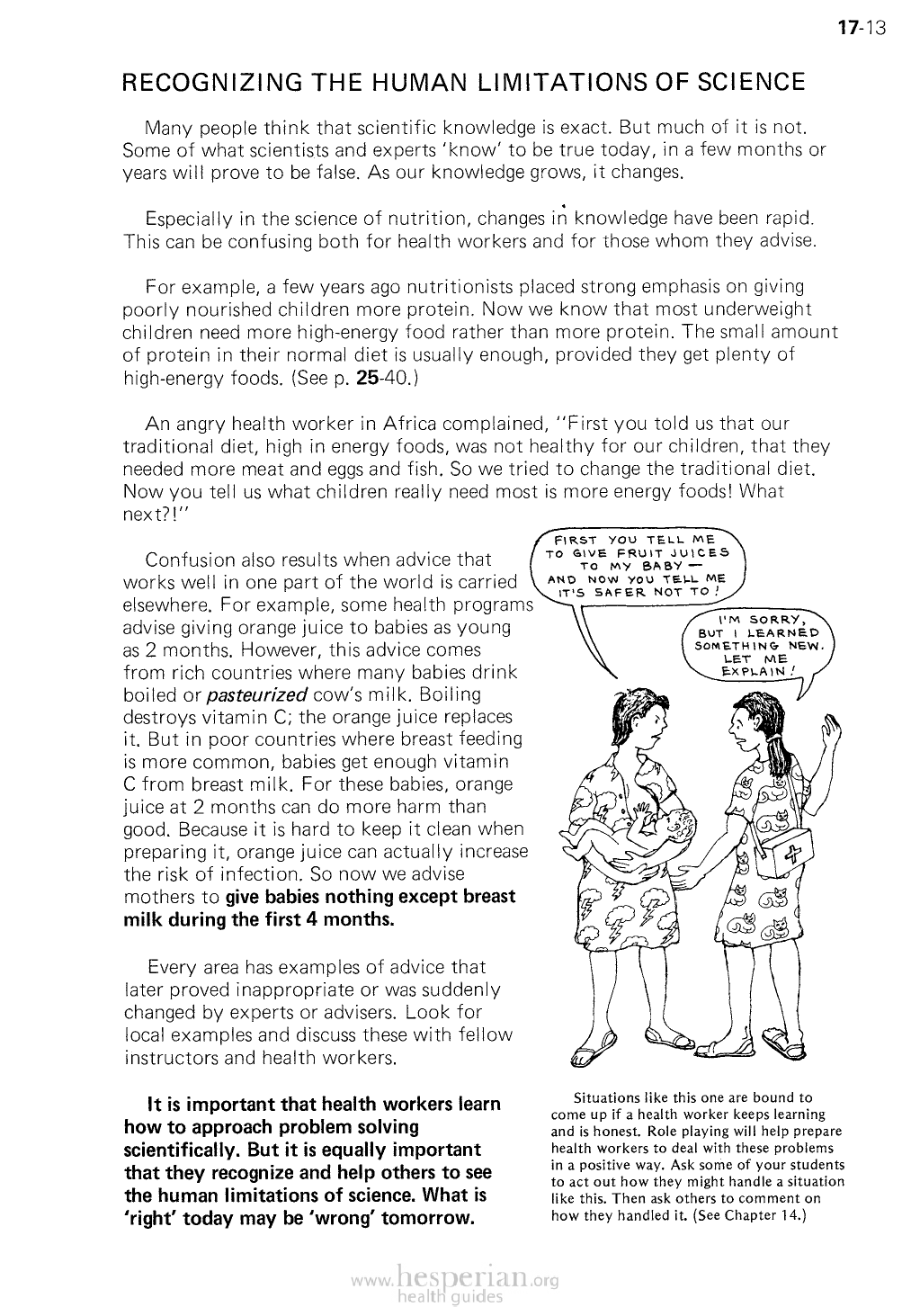
17-13
RECOGNIZING THE HUMAN LIMITATIONS OF SCIENCE
Many people think that scientific knowledge is exact. But much of it is not. Some
of what scientists and experts ‘know’ to be true today, in a few months or years will
prove to be false. As our knowledge grows, it changes.
Especially in the science of nutrition, changes in knowledge have been rapid. This
can be confusing both for health workers and for those whom they advise.
For example, a few years ago nutritionists placed strong emphasis on giving
poorly nourished children more protein. Now we know that most underweight
children need more high-energy food rather than more protein. The small amount
of protein in their normal diet is usually enough, provided they get plenty of high-
energy foods. (See p. 25-40.)
An angry health worker in Africa complained, “First you told us that our
traditional diet, high in energy foods, was not healthy for our children, that they
needed more meat and eggs and fish. So we tried to change the traditional diet.
Now you tell us what children really need most is more energy foods! What
next?!”
Confusion also results when advice that
works well in one part of the world is carried
elsewhere. For example, some health programs
advise giving orange juice to babies as young
as 2 months. However, this advice comes
from rich countries where many babies drink
boiled or pasteurized cow’s milk. Boiling
destroys vitamin C; the orange juice replaces
it. But in poor countries where breast feeding
is more common, babies get enough vitamin
C from breast milk. For these babies, orange
juice at 2 months can do more harm than
good. Because it is hard to keep it clean when
preparing it, orange juice can actually increase
the risk of infection. So now we advise mothers
to give babies nothing except breast milk
during the first 4 months.
Every area has examples of advice that
later proved inappropriate or was suddenly
changed by experts or advisers. Look for
local examples and discuss these with fellow
instructors and health workers.
It is important that health workers
learn how to approach problem solving
scientifically. But it is equally important that
they recognize and help others to see the
human limitations of science. What is ‘right’
today may be ‘wrong’ tomorrow.
Situations like this one arc bound to come
up if a health worker keeps learning and is
honest. Role playing will help prepare health
workers to deal with these problems in a
positive way. Ask some of your students to
act out how they might handle a situation
like this. Then ask others to comment on how
they handled it (See Chapter 14.)